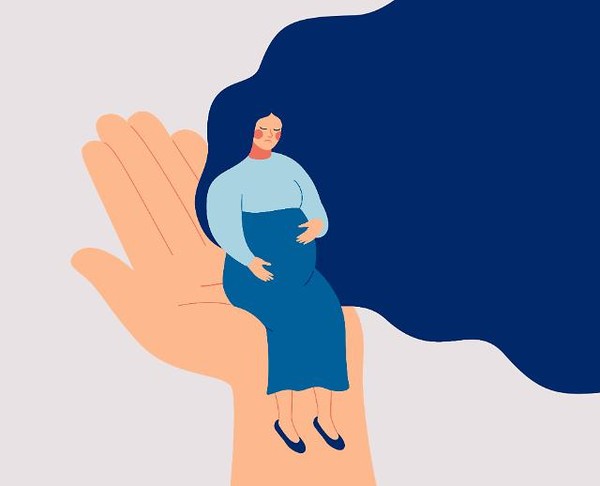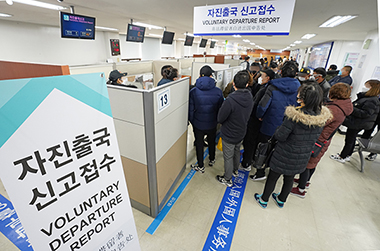On March 17th, 2022, Choi Hye-young of the Democratic Party of Korea held a press conference at the National Assembly to urge the introduction of Universal Birth Registration (UBR). She explained, “This is a measure to supplement the current system in which the state cannot confirm the birth of a child without the parents’ birth registration.” The government and the National Assembly are actively trying to introduce UBR to protect children from abuse and violations of their rights. However, the bill has more negative effects than positive. Therefore, the Korean government should not introduce a UBR that obliges medical institutions to report the birth of a child.
First, the administrative burden of obstetrics and gynecology medical institutions experiencing a business crisis increases. According to the partial amendment to the “Act on Registration of Family Relations” passed by the State Council on March 2nd, the head of a medical institution must provide the name and resident registration number of the mother along with the gender and the birth date of the child to the head of the local government within 14 days after the birth of the child. After, the head of the local government checks whether the child's birth has been registered based on the notification from the medical institution. If the parents do not report the child’s birth within 1 month, the head of the local government records the birth in the family relations. In other words, the responsibilities of administrative tasks related to birth registration, which were originally in charge of public officials, are transferred to the medical institutions. Furthermore, medical institutions are unable to escape from the deterioration of their management due to the declining birth rate. As of 2021, the number of births (260,500) decreased by 4.3% from the previous year, and the Total Fertility Rate[1] in Korea was 0.81, the lowest figure since statistics have been kept from 1970. It is natural that the management status of obstetricians and gynecologists becomes worse at a time when the fertility rate is low. If obstetrics and gynecology medical institutions are also responsible for administrative tasks, they would have to hire more manpower and the management will become more difficult.

Second, UBR causes the avoidance of childbirth in a hospital. Unmarried or young mothers are more likely to avoid childbirth in hospitals because they are obliged to register their child with the law. Imposing the duty of birth notification on medical institutions means that hospitals must notify a child’s birth regardless of the mother’s will. On March 18th, the Korean Association of Obstetrics and Gynecology explained that there would be mothers who want to hide their childbirth. And if the Korean government introduces UBR, they will avoid delivery in hospitals where they have to notify the state about their childbirth. In 2021, an average of 9.4 babies a month were abandoned at the baby box of Jusarang Community Church in Gwanak-gu, Seoul. A baby box is a box for a mother who cannot raise their child for unavoidable reasons and wants to leave her child behind. If medical institutions force mothers to report births, they may have no choice but to choose to do so in a place other than a hospital. As a result, the safety and health of both mothers and children will be further threatened. Concerned about these side effects, the government announced that it would introduce an anonymous childbirth system together. Under the anonymous childbirth system, if a mother reveals her intention to give the child up for adoption or hide her identity, the mother can hide her name. After the process, birth registration and adoption of a child are possible. Still, with the anonymous childbirth system, the state should be informed about the children. Thus, it is questionable whether mothers will choose to go to the hospital where the birth notification system is mandatory.

Third, children of illegal immigrants can cause confusion by acquiring Korean citizenship. In order to establish the UBR, which has not been legalized yet, even children born to foreign parents living in Korea must be able to register the birth with the government. However, illegal immigrants have no choice but to fear that their identity will be revealed. In other words, when people such as illegal immigrants and stateless persons give birth in a hospital, there is no way for doctors to verify whether the personal information provided by the mother is true. Even if the duty to report is imposed on medical institutions, accurate reporting is difficult in such cases. The registration of those who are difficult to identify may cause confusion in legal family relationships. Furthermore, a similar problem may also arise in the anonymous childbirth system. Illegal immigrants may abuse the anonymous childbirth system, in which birth registration is possible with anonymous maternal information, to obtain Korean citizenship for their children. Those who are reluctant to disclose their identity can only register the child while hiding the mother's information. According to the Ministry of Justice, the number of illegal residents increased in 2020 due to COVID-19, and as of May 2021, about 20% of the total foreigners in Korea were residing illegally. If the UBR with the anonymous childbirth system is introduced, more illegal immigrants may enter the country to acquire nationality for their children. This can negatively affect domestic public services and the labor market.

The Universal Birth Registration (UBR), which imposes an obligation on medical institutions to report the birth of children, increases the burden on obstetricians and gynecologists who are experiencing a business crisis due to a sharply declining fertility rate. Furthermore, even if the anonymous childbirth system is introduced together, mothers who do not want to inform the state of the birth may still avoid childbirth in a hospital. Lastly, due to UBR, illegal immigrants will abuse the system to obtain Korean citizenship for their children, and the registration of people with unknown identities will cause confusion in Korean society. It is also likely that more illegal immigrants will come in. Therefore, the Korean government should not introduce a UBR.
Pros of UBR supported medical institutions to notifying the state of the birth of children, on the bases of guaranteeing children's social rights, preventing child abuse, and the fact that the UBR was successful abroad. In contrast, the cons argued that the Korean government should not adopt the system due to the increase in the administrative burden of obstetricians during a business crisis, the avoidance of hospital visits by mothers who want to hide the fact of childbirth, and the possibility of illegal immigrants abusing the system. Considering that both sides can be supported by logical reasons and the rights of each mother and child, it is difficult to decide easily. The government is expected to lead the policy in a direction that can protect as many people as possible in the future.
[1] The average number of babies a woman is expected to have in her lifetime

